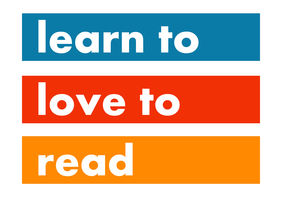Shortly after retiring as a police officer four years ago, Alan saw a poster about volunteering for Learn to Love to Read in his local library. Although his sport was keeping him busy, he was keen to do something a little different and give back to his local community. He’s an enthusiastic adult reader so thought this might be the perfect opportunity. “Being in the police, you’re always trying to help people, often vulnerable people and I wanted to continue to do this,” he says. “I wanted to try to make a difference.”
When Alan came along to the volunteer training session he soon noticed he was the only man in the room! He wasn’t overly surprised but comments, “I have a son of my own and was always told that my reading to him added a difference perspective, so I feel it’s important for young boys to have male role model in their life.” Given that over 80% of primary school teachers are female and a child may never experience a male teacher particularly in their primary years, Learn to Love to Read’s male volunteers can have an important role to play, even outside their main purpose of supporting children’s reading.
Alan was apprehensive before starting to volunteer but soon realised that it’s a learning curve and working out what works best for each individual child is key to success. The impact – and reward – can be huge:
“The children gain confidence. You’re a stranger to them at the start. During COVID I read with a girl over Zoom. She was so shy and it took a long time to get her going, even with her mum by her side. As time went on however, she became more confident and was a really good reader by the end. Her mum told me how grateful she was for the reading sessions, and how she had also seen her daughter’s confidence grow -so much so that she would actually talk about how she was looking forward to the sessions each week.”
So what does he feel is the best part of being a volunteer? “The satisfaction you get from it – I feel saintly after each session! But it’s just a few hours out of one day a week.” He loves seeing how the children develop. One of his children started this school year so shy he could hardly speak, but Alan happily reports that now, not only does he not stop talking, he’s also really interested in what he’s reading. As a Year 3 pupil, a huge amount of this child’s school career will have been disrupted by COVID and it’s not hard to see the effects. As well as helping him with his reading, Alan’s support is no doubt improving his social and conversation skills which may have been impacted by the school closures. “That one-to-one time is so important,” he reflects.
Alan comes along to Learn to Love to Read’s volunteer coffee mornings when he can and found Head of Family Programmes, Tara Coffin’s recent Word Games workshop inspiring! “The training is useful and you need to know the basics, but different children need a different approach so you learn on the job too. Often I’ll write down a sound or word we’ve worked on in the session and encourage the children to look at it during the week. They are really pleased with themselves when they remember it the next week.”
Does he recommend volunteering with Learn to Love to Read? “Do it – it’s great. You get a great sense of self-worth and it’s doesn’t take up a huge amount of time. We often don’t fully understand how being disadvantaged can affect a child’s life and it’s so important we help where we can. I can’t change the world, but I can make things a little better.”




